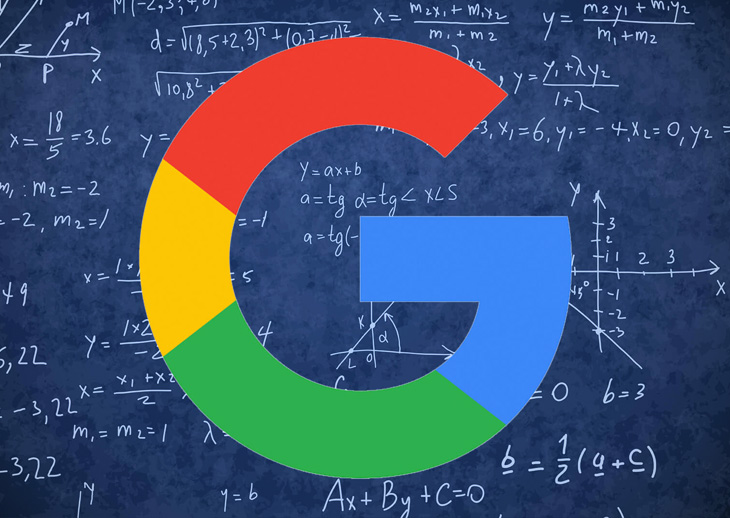E-E-A-T: The SEO Game-Changer You Can’t Afford to Overlook
At a glance:
- Prioritise E-E-A-T (Experience, Expertise, Authoritativeness, and Trustworthiness) for SEO success.
- Craft high-quality content, earn backlinks, and engage users to enhance credibility.
- Embrace E-E-A-T principles to elevate your website’s visibility and reap the rewards of improved SEO performance.
In the digital space, where visibility reigns supreme, understanding E-E-A-T is pivotal. E-E-A-T stands for Experience, Expertise, Authoritativeness, and Trustworthiness – which dictates your website’s credibility to search engines like Google. Neglecting E-E-A-T could result in a huge drop in search rankings and missed opportunities.
Bolstering these elements not only enhance your site’s SEO performance, but also builds a loyal audience base. From optimising content to cultivating backlinks, every SEO tactic intersects with E-E-A-T principles. Ignoring this critical factor is a luxury no online business can afford. Stay with us as we delve into why E-E-A-T is the game-changer in SEO strategies.
Understanding E-E-A-T
Understanding E-E-A-T is crucial for mastering SEO. It’s not just a new fad; it has a history. Google first introduced E-A-T (the original version of E-E-A-T) as a guideline for evaluating web page quality.
Google introduced E-A-T in March 2014, aiming to help human raters (known as Quality Raters) review the quality of search results.
It became especially prominent after Google’s algorithm updates, like the Medic Update in 2018, which emphasised the importance of E-A-T.
The updated definition of E-A-T is E-E-A-T, with the extra E implying ‘Experience.’ This modern definition of E-A-T was released in December 2022.
Let’s break down each component:
Experience
This highlights the importance of real-life involvement with the content’s subject. Google values if writers have firsthand experience with what they’re discussing, like trying products or visiting places. Businesses can enhance their SEO by showcasing genuine customer reviews and testimonials, ensuring they’re from real customers.
They can also conduct trials of recommended products or services and share the results. For sites offering information about places, like travel or real estate, using original content with proof of actual visits, such as photos and detailed accounts, boosts credibility. Prioritising real experiences in content not only aligns with Google’s guidelines but also builds trust with audiences, improving SEO performance.
Expertise
This refers to your knowledge and skill in a particular subject. In SEO, demonstrating expertise means creating high-quality, informative content that showcases your understanding of the topic. Expertise helps Google recognise you as a reliable source of information, boosting your site’s credibility.
Authoritativeness
This reflects your influence and reputation in your industry. Building authority involves earning backlinks from reputable sites, being mentioned in press releases or news articles, and engaging with your audience on social media. Authoritative sites are more likely to rank higher in search results because Google trusts them to provide valuable content.
Trustworthiness
Trustworthiness is about reliability and transparency. To improve trustworthiness, ensure your website is secure (using HTTPS), provide accurate and up-to-date information, and display trust signals like customer reviews and testimonials. Trustworthy sites are favoured by both users and search engines, leading to better SEO performance.
Why does E-E-A-T matter?
Understanding why E-E-A-T matters is key to SEO success. E-E-A-T directly affects how well your web pages rank in search results. When your content demonstrates Experience, Expertise, Authority, and Trustworthiness, search engines like Google see it as reliable and valuable. This means higher rankings and more visibility for your website.
Experience shows that you have firsthand knowledge of what you’re talking about, boosting credibility. Expertise proves you know your stuff, making your content more helpful and relevant. Authority signals that you’re a trusted source in your field, earning you respect from both users and search engines. Trustworthiness assures visitors that your site is dependable and safe to use.
When all these factors come together, your SEO performance improves significantly. Users trust your content more, leading to increased traffic, better engagement, and, ultimately, more success for your website.
How Google’s Quality Raters Evaluate E-E-A-T

Google’s Quality Raters play a vital role in evaluating the E-E-A-T (Experience, Expertise, Authoritativeness, and Trustworthiness) of web pages. These Raters are real people hired by Google to assess the quality of search results. They follow Google guidelines and evaluate factors like information accuracy, website reputation, and content creator expertise.
When assessing E-E-A-T, Quality Raters look for clear indications of expertise, such as credentials or relevant experience, to determine if the content is trustworthy and authoritative. They also consider the reputation of the website and its authors, looking for signs of reliability and trustworthiness, such as positive reviews or mentions from reputable sources.
Furthermore, Quality Raters examine whether the content meets the needs of users and provides valuable insights or solutions. They assess factors like readability, clarity, and relevance to ensure that the content effectively communicates its message and engages the audience.
Overall, Google’s Quality Raters play a crucial role in maintaining the quality of search results by evaluating the E-E-A-T of web pages and ensuring that users receive accurate, trustworthy, and valuable information.
How to Improve Your Website’s E-E-A-T?
Improving your website’s E-E-A-T is vital for SEO success. Here’s how you can do it:
High-Quality Content
Creating accurate, informative, and valuable content is crucial for improving E-E-A-T. Focus on answering users’ questions and addressing their needs. For example, if you’re a health website, publish well-researched articles written by experts in the field. This demonstrates both expertise and trustworthiness. Make sure your content is well-written, easy to understand, and free of errors to enhance the user experience.
Credible Sources
Using credible sources for information lends credibility to your content. Always cite reputable sources and back up your claims with evidence. For instance, if you’re writing about a scientific topic, reference peer-reviewed studies and research papers. This shows expertise and builds trust with your audience. Avoid using unreliable sources or spreading misinformation, as this can harm your website’s reputation and E-E-A-T.
Author Info and Backlinks

Providing author information adds transparency and helps establish authority. Include details about the author’s qualifications, experience, and expertise in the topic they’re writing about. This gives readers confidence in the content’s accuracy and reliability. Additionally, earning backlinks from authoritative websites signals to search engines that your site is trusted and respected in your industry. For example, if a reputable news outlet links to your article on climate change, it enhances your site’s authority on the subject.
By focusing on high-quality content, credible sources, and author information, you can improve your website’s E-E-A-T and boost its SEO performance. For instance, imagine you run a cooking blog. You publish detailed recipes with step-by-step instructions, along with tips and tricks from experienced chefs.
You also include citations from renowned culinary experts and provide author bios highlighting your chefs’ culinary backgrounds. Furthermore, your blog earns backlinks from reputable food websites and cooking forums. As a result, your website gains recognition as a trustworthy source for cooking advice, enhancing its E-E-A-T and attracting more traffic.
Impact of AI Content on Website’s E-E-A-T
AI-generated content can impact a website’s E-E-A-T in several ways:
Trustworthiness
AI-generated content can affect trustworthiness. AI lacks the human touch and nuanced understanding of humans, which makes the content relatable and trustworthy. For instance, if a medical website publishes AI-generated health advice without human oversight, it may lack empathy and understanding, reducing its trustworthiness.
Fact-Checking Issues
There are fact-checking issues with AI content. AI may generate inaccurate or misleading information, leading to unreliable and damaging content to E-E-A-T. For example, a news website that relies solely on AI for article generation may inadvertently spread false information, undermining its authority and expertise.
Lack of Relevance

AI content may lack context and relevance, impacting both Expertise and Authority. For instance, if a travel website uses AI to generate destination guides without considering recent events or local customs, it may appear uninformed and inexperienced, reducing its credibility.
While AI can streamline content creation and research (to some extent), it must be used cautiously to maintain E-E-A-T. Human oversight, fact-checking processes, and context are essential to ensure AI-generated content enhances, rather than diminishes, a website’s credibility and SEO performance.
E-E-A-T for YMYL Websites
E-E-A-T holds immense importance for YMYL (Your Money or Your Life) websites, particularly those offering health, financial, or legal advice. Unlike other types of websites, YMYL sites directly impact users’ well-being, finances, or safety.
For instance, a health website providing medical advice must demonstrate expertise from qualified professionals, authority from reputable medical institutions, and trustworthiness through accurate information and citations.
Similarly, a financial website offering tax advice needs to showcase expertise from certified accountants, authority from recognised financial institutions, and trustworthiness through transparent and reliable information.
Compared to other websites, the stakes are higher for YMYL sites because inaccurate or misleading information can have serious consequences for users. For example, a health website that promotes unproven medical treatments could harm users’ health, while a financial website that provides incorrect tax advice could lead to legal issues for users.
Therefore, E-E-A-T is paramount for YMYL websites to establish credibility, gain users’ trust, and provide valuable and reliable information that positively impacts users’ lives.
What to Expect; E-E-A-T & Future SEO Trends
In the ever-evolving world of SEO, adapting to future trends is crucial for maintaining visibility and relevance. One key strategy is focusing on E-A-T: Expertise, Authoritativeness, and Trustworthiness. As search algorithms become more sophisticated, user engagement plays a vital role.
Engaging, authoritative, and trustworthy content not only attracts visitors but also keeps them coming back for more. For example, a health website that regularly updates its content with well-researched articles written by medical experts establishes authority and builds trust with its audience.
Additionally, mobile optimisation is increasingly important in the future of SEO. With more people accessing the internet via mobile devices, ensuring that web pages are mobile-friendly is essential.
Mobile optimisation includes optimising page speed for faster loading times, implementing user-friendly navigation for seamless browsing, and ensuring that the website is responsive across different screen sizes and devices. A travel website, for instance that provides a smooth and intuitive mobile browsing experience encourages users to explore more content and increases the likelihood of return visits.
By prioritising E-E-A-T principles and optimising for mobile, websites can adapt to the changing SEO landscape and stay ahead of the competition. As user expectations evolve and search engines continue to refine their algorithms, staying flexible and proactive in these areas will be key to success in the future of SEO.
Final Words
In the vast digital realm, E-E-A-T emerges as the linchpin of SEO strategies. It’s not just a catchy acronym but the foundation of your online presence. Whether you’re showcasing real experiences or proving your expertise, every aspect of E-E-A-T shapes your website’s destiny in the eyes of search engines like Google.
Remember this: E-E-A-T is your pathway to success in the digital world. Neglecting it is like sailing without a compass – risky and uncertain. Instead, embrace its principles, nurture a credible online persona, and watch your website climb the ranks of search engine results.
In essence, E-E-A-T is the ultimate SEO game-changer. It’s the key to unlocking visibility, credibility, and, ultimately, success online. So, don’t underestimate its power. Take control of your SEO destiny by prioritising E-E-A-T in everything you do.
With E-E-A-T as your guiding light, your website will not just survive but thrive in the ever-evolving digital landscape. This is where digital agencies excel, and take your website and marketing to the next level. If you’d like to discuss how Anxious To Matter can optimise your existing website and SEO plan, or launch this for you, get in touch today.
Enquire Today
Melbourne Head Office
Suite 38 Level 7/570 St Kilda Rd, Melbourne VIC 3004, Australia
Phone: 1300 780 471
Email: [email protected]








